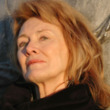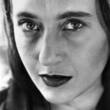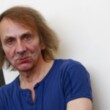Change
Description
Named a Best Book of the Year by Vogue, BBC, and Hudson BooksellersA New Yorker Recommended Read of the YearAn autobiographical novel from Édouard Louis, hailed as one of the most important voices of his generation—about social class, transformation, and the perils of leaving the past behind.One question took center stage in my life, it focused all my thoughts and occupied every moment when I was alone with myself: how could I get this revenge, by what means? I tried everything.Édouard Louis longs for a life beyond the poverty, discrimination, and violence in his working-class hometown—so he sets out for school in Amiens and, later, university in Paris. He sheds the provincial “Eddy” for an elegant new name, determined to eradicate every aspect of his past. He reads incessantly, he dines with aristocrats, he spends nights with millionaires and drug dealers alike. Everything he does is motivated by a single obsession: to become someone else. At once harrowing and profound, Change is not just a personal odyssey, a story of dreams and of “the beautiful violence of being torn away,” but a vividly rendered portrait of a society divided by class, power, and inequality.
More Details
Similar Titles From NoveList
Similar Authors From NoveList
Published Reviews
Booklist Review
This coming-of-age story introduces readers to 17-year-old Eddy Belleguele, a closeted gay teen who lives with his working-class family in a small town in a bleak northern France. An upper-middle-class girl named Elena befriends Eddy and "civilizes" him. Desperate nevertheless to escape his home and change his life, Eddy travels to the nearest big city, Amiens, where he meets the philosopher and writer Didier Eribon. The famous author becomes a kind of mentor to Eddy, who dreams of becoming an intellectual himself. Eddy's desire for change continues when he is admitted to the prestigious École Normale Supérieure in Paris. Having long dreamed of being rich and taking revenge on his past life, Eddy soon begins dating wealthy and powerful men. He realizes another dream with the publication of his first novel, The End of Eddy. Not coincidentally, this is also the title of author Louis' own first novel, this book's companion exercise in first-person autofiction. The author shares his character's name and birthplace, Eribon is a real person, etc. Intriguing as it is to imagine what is "real" and what's imagined, these questions don't much enrich what is already a beautifully executed, memorable, and highly recommended novel.
Publisher's Weekly Review
Louis (The End of Eddy) returns with another scorching autobiographical novel, this time drawing on his efforts to break out of isolation and poverty. Eddy Bellegueule (Louis's birth name) grows up in a rural French village rife with racial tension and violence, where his family often has to beg for food. At 14, a drama teacher encourages him to apply to a lycée in Amiens, 30 kilometers away, and he jumps at the chance. At the new school, he befriends a classmate named Elena, who invites him to meals at her family home. There, Eddy learns about cinema and literature and "how not to eat like a peasant." His "new life" allows Édouard--as he renames himself--to "take revenge on childhood" by striving to become a successful author like his mentor Didier, who encourages him to write. He also gets a leg up from a wealthy older man he meets in a bar, who helps him get into an elite Parisian école and pays to have his teeth fixed. Édouard calls his project of transformation a "permanent obsession," as he regularly feels like an imposter and worries he'll fail at school and have to return home. Having worked as an escort in Amiens and Paris, he expresses a singular view about the trade ("In making love with a man I rejected all the values of my milieu, I became bourgeois"). With frank prose and staggering insights, Louis makes the story of his metamorphosis feel vital and alive. This is irresistible. Agent: Jacqueline Ko, Wylie Agency. (Mar.)
Library Journal Review
Born into a very poor family in rural northern France, Eddy Bellegueule knows he is different from those around him, and not only because he is gay. On Saturday evenings, Eddy and a friend go to the "big" supermarket and just wander around, thinking of how grand it would be to actually shop there. Ignorance, poverty, and small doses of violence are common in Eddy's limited world, and he wants to change his life. Impressed by educated, wealthy, stylish men, he transforms himself--changes his name, straightens his teeth, and improves his hairline. But the changes go beyond the superficial; Eddy also adheres to a strict, rigorous course of philosophical and historical studies that eventually lands him a place at a prestigious university in Paris. With the necessary help of friends Elena, Didier, and Ludovic along the way, Eddy successfully transforms himself into Édouard Louis and becomes a published author, leaving behind his small village and its inhabitants. VERDICT Louis's (History of Violence) brilliant autobiographical novel set off fireworks when it was published in France. This fast page-turner will stir emotions and quicken heartbeats as Eddy creates his ideal self-image.--Lisa Rohrbaugh
Kirkus Book Review
A child of rural poverty recalls his rise to literary fame and the intellectual class. In his 2017 autofiction, The End of Eddy--a bestseller in his home country--Louis recalled a youth in northern France defined by poverty, racism, and violence. In this bracing sequel, Louis chronicles his escape from the upbringing he was so determined to leave behind. A bright but self-loathing gay adolescent, he's quick to attach himself to anyone who praises him, so he bonds tightly with Elena, a classmate with well-read parents and respect for his intellect. With her encouragement, he leverages his gift for acting to find work in a theater and makes plans to head for Paris. There, with the help of a philosopher, Didier, he begins to gain entry to the city's intelligentsia and crams to enter an elite school. Édouard (he's rejected his birth name, Eddy) is stubbornly determined to make his name as a writer, but his achievements only rarely feel like triumphs; rather, he's anxious at every turn about whether he's smart enough to measure up, stalked by imposter syndrome, and aware that his lovers' generosity has limits. (For a time he makes ends meet as a sex worker.) Nor can he shake off his family's judgment of him as a snob-in-training. "If you make it in you're saved," he tells himself about his efforts to enter the school, but his acceptance is a Pyrrhic victory. Even as he begins hobnobbing with wealthy men and begins his successful career as a writer, it's clear that his craving for acceptance and approval, literally beaten into him as a child, has yet to be entirely overcome. Louis' storytelling, in Lambert's deft translation, is clear and intellectually robust but captures a tone of fear and anxiety; what he often calls "revenge," even on a family that might deserve it, is a corrosive feeling. A sharp chronicle of status climbing and its consequences. Copyright (c) Kirkus Reviews, used with permission.
Booklist Reviews
*Starred Review* This coming-of-age story introduces readers to 17-year-old Eddy Belleguele, a closeted gay teen who lives with his working-class family in a small town in a bleak northern France. An upper-middle-class girl named Elena befriends Eddy and "civilizes" him. Desperate nevertheless to escape his home and change his life, Eddy travels to the nearest big city, Amiens, where he meets the philosopher and writer Didier Eribon. The famous author becomes a kind of mentor to Eddy, who dreams of becoming an intellectual himself. Eddy's desire for change continues when he is admitted to the prestigious École Normale Supérieure in Paris. Having long dreamed of being rich and taking revenge on his past life, Eddy soon begins dating wealthy and powerful men. He realizes another dream with the publication of his first novel, The End of Eddy. Not coincidentally, this is also the title of author Louis' own first novel, this book's companion exercise in first-person autofiction. The author shares his character's name and birthplace, Eribon is a real person, etc. Intriguing as it is to imagine what is real and what's imagined, these questions don't much enrich what is already a beautifully executed, memorable, and highly recommended novel. Copyright 2024 Booklist Reviews.
Library Journal Reviews
From The End of Eddy to A Woman's Battles and Transformations, internationally best-selling author Louis writes blistering autofiction addressing homophobia and French working-class poverty. Here he homes in on his youth to assess the people he admired and emulated, the jobs he took to get by when he rose to attend two of France's most distinguished schools, and the pain he cannot forget. With a 15,000-copy first printing. Prepub Alert. Copyright 2023 Library Journal
Copyright 2023 Library Journal.Library Journal Reviews
Born into a very poor family in rural northern France, Eddy Bellegueule knows he is different from those around him, and not only because he is gay. On Saturday evenings, Eddy and a friend go to the "big" supermarket and just wander around, thinking of how grand it would be to actually shop there. Ignorance, poverty, and small doses of violence are common in Eddy's limited world, and he wants to change his life. Impressed by educated, wealthy, stylish men, he transforms himself—changes his name, straightens his teeth, and improves his hairline. But the changes go beyond the superficial; Eddy also adheres to a strict, rigorous course of philosophical and historical studies that eventually lands him a place at a prestigious university in Paris. With the necessary help of friends Elena, Didier, and Ludovic along the way, Eddy successfully transforms himself into Édouard Louis and becomes a published author, leaving behind his small village and its inhabitants. VERDICT Louis's (History of Violence) brilliant autobiographical novel set off fireworks when it was published in France. This fast page-turner will stir emotions and quicken heartbeats as Eddy creates his ideal self-image.—Lisa Rohrbaugh
Copyright 2024 Library Journal.Publishers Weekly Reviews
Louis (The End of Eddy) returns with another scorching autobiographical novel, this time drawing on his efforts to break out of isolation and poverty. Eddy Bellegueule (Louis's birth name) grows up in a rural French village rife with racial tension and violence, where his family often has to beg for food. At 14, a drama teacher encourages him to apply to a lycée in Amiens, 30 kilometers away, and he jumps at the chance. At the new school, he befriends a classmate named Elena, who invites him to meals at her family home. There, Eddy learns about cinema and literature and "how not to eat like a peasant." His "new life" allows Édouard—as he renames himself—to "take revenge on childhood" by striving to become a successful author like his mentor Didier, who encourages him to write. He also gets a leg up from a wealthy older man he meets in a bar, who helps him get into an elite Parisian école and pays to have his teeth fixed. Édouard calls his project of transformation a "permanent obsession," as he regularly feels like an imposter and worries he'll fail at school and have to return home. Having worked as an escort in Amiens and Paris, he expresses a singular view about the trade ("In making love with a man I rejected all the values of my milieu, I became bourgeois"). With frank prose and staggering insights, Louis makes the story of his metamorphosis feel vital and alive. This is irresistible. Agent: Jacqueline Ko, Wylie Agency. (Mar.)
Copyright 2024 Publishers Weekly.






























